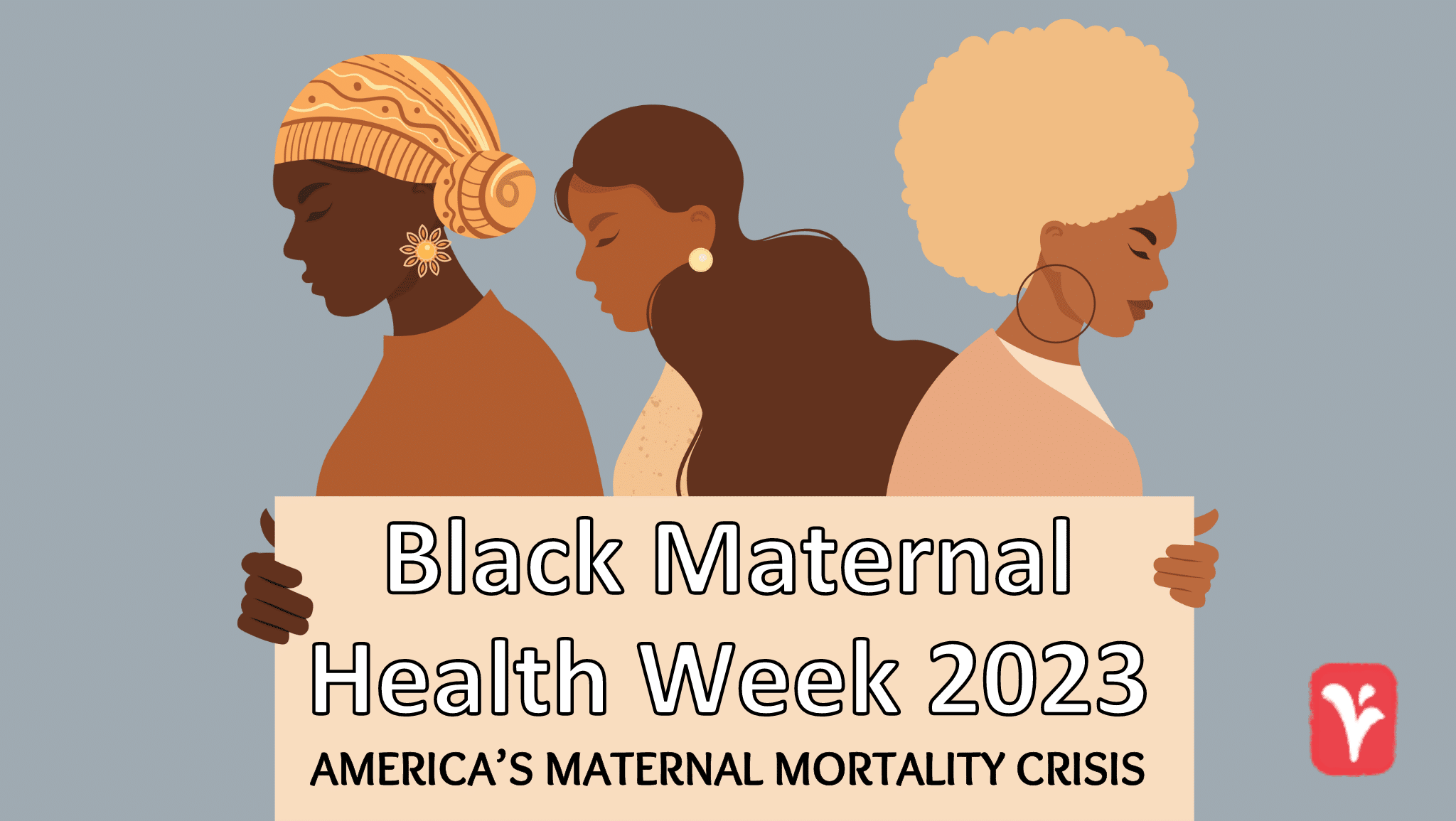Black Maternal Health Week 2023 and America’s Maternal Mortality Crisis
Black Maternal Health Week occurs each year from April 11-17. The week is led by the Black Mamas Matter Alliance, a network of Black women-led organizations and multi-disciplinary professionals working across the full spectrum of maternal and reproductive health. In 2021, the White House recognized Black Maternal Health Week. The week is a call to action around the urgency of the maternal health crisis, specifically for Black women and people with pregnancy capacity.
The week is spurred by a distressing uptick in maternal mortality rates, specifically for Black women and birthing people. There are gaping disparities in maternal mortality rates across races. Black women and those with pregnancy capacity are three times more likely to die from a pregnancy-related cause than white women.
Black Maternal Mortality Rates in Texas
Texas is one of the top ten states with the highest maternal mortality rates in the nation. According to the most recent data, even though Black women only accounted for 11% of births in Texas, they comprised 31% of maternal deaths. Further, the Texas Maternal Mortality and Morbidity Review Committee delayed the release of their report, which collects data on pregnancy-related and associated deaths in the state, by three months, which advocates say was politically motivated. The same report found that 90% of maternal deaths from data collected between 2018-2020 may have been preventable.
RELATED: How To Find a Culturally Competent OB-GYN
While the report determined that discrimination contributed to 12% of pregnancy-related deaths in 2019, advocates have long been sounding the alarm about inequities that permeate these disparities. Structural racism, and access barriers to healthcare, like comprehensive reproductive health services and postpartum care, leave Black women and those with pregnancy capacity vulnerable to pregnancy complications and lack of prompt care for these complications, where timing can be critical. It’s also well-documented that Black women’s concerns are frequently dismissed by healthcare providers, caused by implicit bias.
The latest Texas report found that obstetric hemorrhage, or excessive blood loss, was the leading cause of pregnancy-related deaths in Texas, making up a quarter of cases. The report found that the most common cause of hemorrhage deaths was an ectopic pregnancy, a pregnancy where an egg implants outside of the uterus, most commonly in a fallopian tube.
Left untreated, ectopic pregnancies can rupture and lead to hemorrhage. The treatment for an ectopic pregnancy is to end the pregnancy. Abortion is now completely banned in Texas. The link between abortion restrictions and pregnancy-related deaths is clear and alarming.
Beyond Texas, states with abortion bans have a 62% higher maternal mortality rate than states with abortion access, according to a report by the Commonwealth Fund, published in December of 2022. The report also detailed that across three years, the maternal mortality rate was increasing nearly twice as fast in states with abortion restrictions.
In the US, maternal mortality rates in 2021 were 32.9 per 100,0000 births. Among high-income countries, the US has the highest rates of maternal deaths, New Zealand’s rate, for example, is 9 per 100,000 births. According to the Centers for Disease Control and Prevention (CDC), there was a sharp increase in 2021 in all age groups and races. COVID-19 is partially responsible; the pandemic exacerbated disparities in access to care.
Black Maternal Health Week 2023 is a reminder of the losses that have occurred. It’s also an urgent call to action to address the disparities plaguing maternal mortality rates. The year’s theme is “Our Bodies Belong to Us: Restoring Black Autonomy and Joy,” which will amplify community-driven policy, research, and care solutions and enhance community organizing on Black maternal health.
Disparity Gaps in Reproductive Health
Black women disproportionately lack necessary reproductive health care—including contraception access and counseling, abortions, STI screenings, and routine reproductive screenings such as mammograms and Pap smears. Black women and those with pregnancy capacity are also more likely to suffer from postpartum depression and not receive care for it.
RELATED: Study Finds That Racism Impacts the Sexual and Reproductive Health of Black Women In the South
Black infants also face poorer outcomes than white infants. According to the CDC, the US has an infant mortality rate of 5.4 per 1000 live births in 2020, with a health disparity among Black babies at a rate of 10.6 deaths per 1,000 live births in 2019.
Actions for Black Maternal Health Week
Nationally, the Biden Administration wrote the blueprint for Addressing the Maternal Health Crisis, where the Federal Government will take actions to improve maternal health through Congress funding.
In Texas, the Maternal Mortality and Morbidity Review Committee recommends expanding Medicaid coverage to new birthing parents from two months to 12 months, as around one-third of deaths in the state occurred 43 days up to a year postpartum. While the Texas House passed a measure in 2021 to expand Medicaid, the conservative Senate voted against it. Democratic House representative Shawn Thierry is working on a new proposal to expand Medicaid coverage.
Beyond Black Maternal Health Week 2023, raising awareness of the maternal health crisis, the causes behind maternal deaths, inequities in care, and structural racism are paramount. Actions and improvements fall on healthcare providers, hospitals, individual states, and communities. 31 states and DC have expanded Medicaid coverage up to one year postpartum.
Maternal mortality rates in America are not statistics, they are real deaths and a grim reflection of a crisis. All pregnancy-related deaths are tragic. When these losses occur, families, loved ones, and newborns are left behind for largely preventable reasons.
At Austin Women’s Health Center, we hope to help close reproductive healthcare gaps. We offer free services, funding options, same-day appointments, early pregnancy assessment care, and pre and post-abortion counseling to our Texas community.
